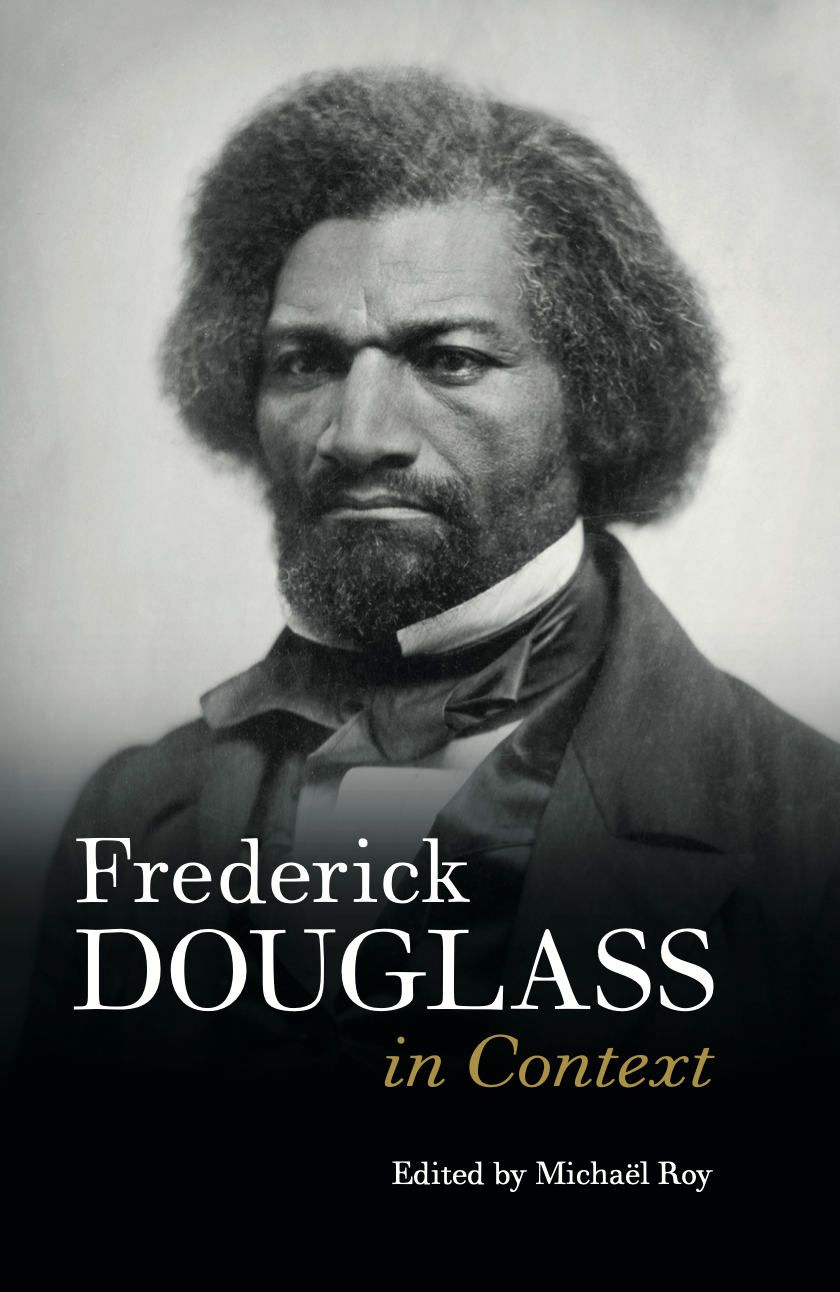- Libellé inconnu,
Michaël Roy (dir.), Frederick Douglass in Context, Cambridge University Press, 2021
Publié le 6 avril 2021 – Mis à jour le 26 avril 2021

Frederick Douglass in Context provides an in-depth introduction to the multifaceted life and times of Frederick Douglass, the nineteenth-century’s leading black activist and one of the most celebrated American writers. An international team of scholars sheds new light on the environments and communities that shaped Douglass’s career. The book challenges the myth of Douglass as a heroic individualist who towered over family, friends, and colleagues, and reveals instead a man who relied on others and drew strength from a variety of personal and professional relations and networks. This volume offers both a comprehensive representation of Douglass and a series of concentrated studies of specific aspects of his work. It will be a key resource for students, scholars, teachers, and general readers interested in Douglass and his tireless fight for freedom, justice, and equality for all.
Introduction (Michaël Roy, Université Paris Nanterre / IUF)
Part One: Places
1. Baltimore (Lawrence Jackson, Johns Hopkins University)
2. The British Isles (Hannah-Rose Murray, University of Edinburgh)
3. Rochester (Nancy A. Hewitt, Rutgers University)
4. Washington, DC (John R. McKivigan, Indiana University–Purdue University Indianapolis)
5. Tour of Europe and Egypt (Gary Totten, University of Nevada, Las Vegas)
6. Haiti (Brandon R. Byrd, Vanderbilt University)
Part Two: Genres
7. Autobiography (Robert S. Levine, University of Maryland)
8. Oratory (Bjørn F. Stillion Southard, University of Georgia)
9. Journalism (Benjamin Fagan, Auburn University)
10. Fiction (Ivy G. Wilson, Northwestern University)
11. Photography (Autumn Womack, Princeton University)
Part Three: Activism
12. Abolition (Kellie Carter Jackson, Wellesley College)
13. Temperance (Erica L. Ball, Occidental College)
14. Women’s Rights (Hélène Quanquin, Université de Lille)
15. The Civil War (Chandra Manning, Georgetown University)
16. Reconstruction and Civil Rights (Douglas R. Egerton, Le Moyne College)
Part Four: Philosophy
17. Politics (Kelvin C. Black, Hunter College, City University of New York)
18. Law (Jeannine Marie DeLombard, University of California, Santa Barbara)
19. Education (Brigitte Fielder, University of Wisconsin–Madison)
20. Religion (Maurice O. Wallace, Rutgers University)
21. Science and Technology (Eric Herschthal, University of Utah)
22. Environment (Tony C. Perry, University of Virginia)
Part Five: Networks
23. The Underground Railroad (Jesse Olsavsky, Duke Kunshan University)
24. Colored Conventions (Jim Casey, Pennsylvania State University)
25. Family (Leigh Fought, Le Moyne College)
26. Correspondence (Fionnghuala Sweeney, Newcastle University)
27. Intertextuality (Julia Lee, Loyola Marymount University)
Part Six: Afterlives
28. Paratexts (Howard Rambsy II, Southern Illinois University Edwardsville)
29. Deployments: Art (Janet Neary, Hunter College, City University of New York)
30. Deployments: Activism (Nele Sawallisch, Catholic University Eichstätt-Ingolstadt)
31. Teaching (Julie Husband, University of Northern Iowa)
32. Bicentennial (A J Aiséirithe, Library of Congress)
https://www.cambridge.org/core/books/frederick-douglass-in-
context/181BCAB94B6372F49EDF20E4197F4674
Mis à jour le 26 avril 2021




